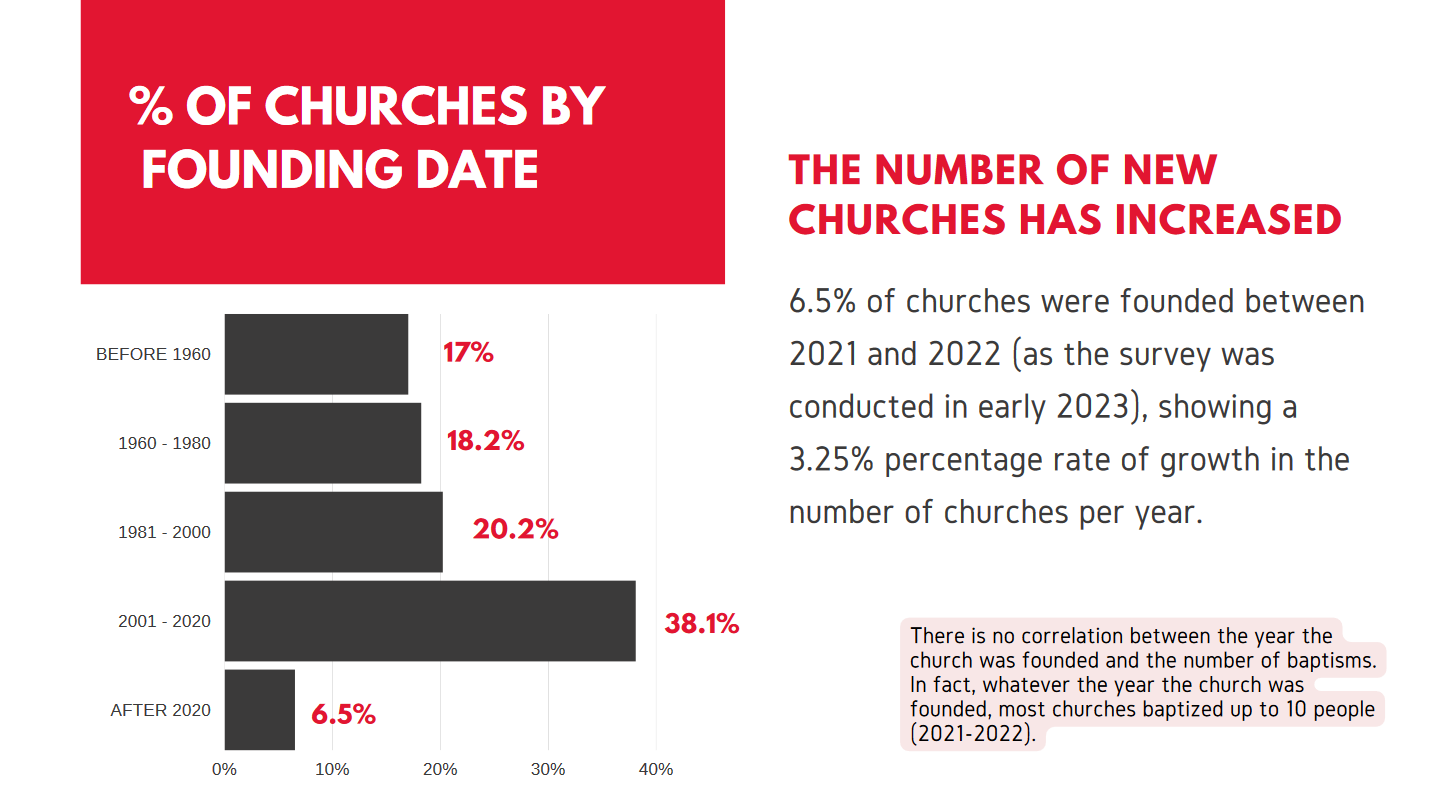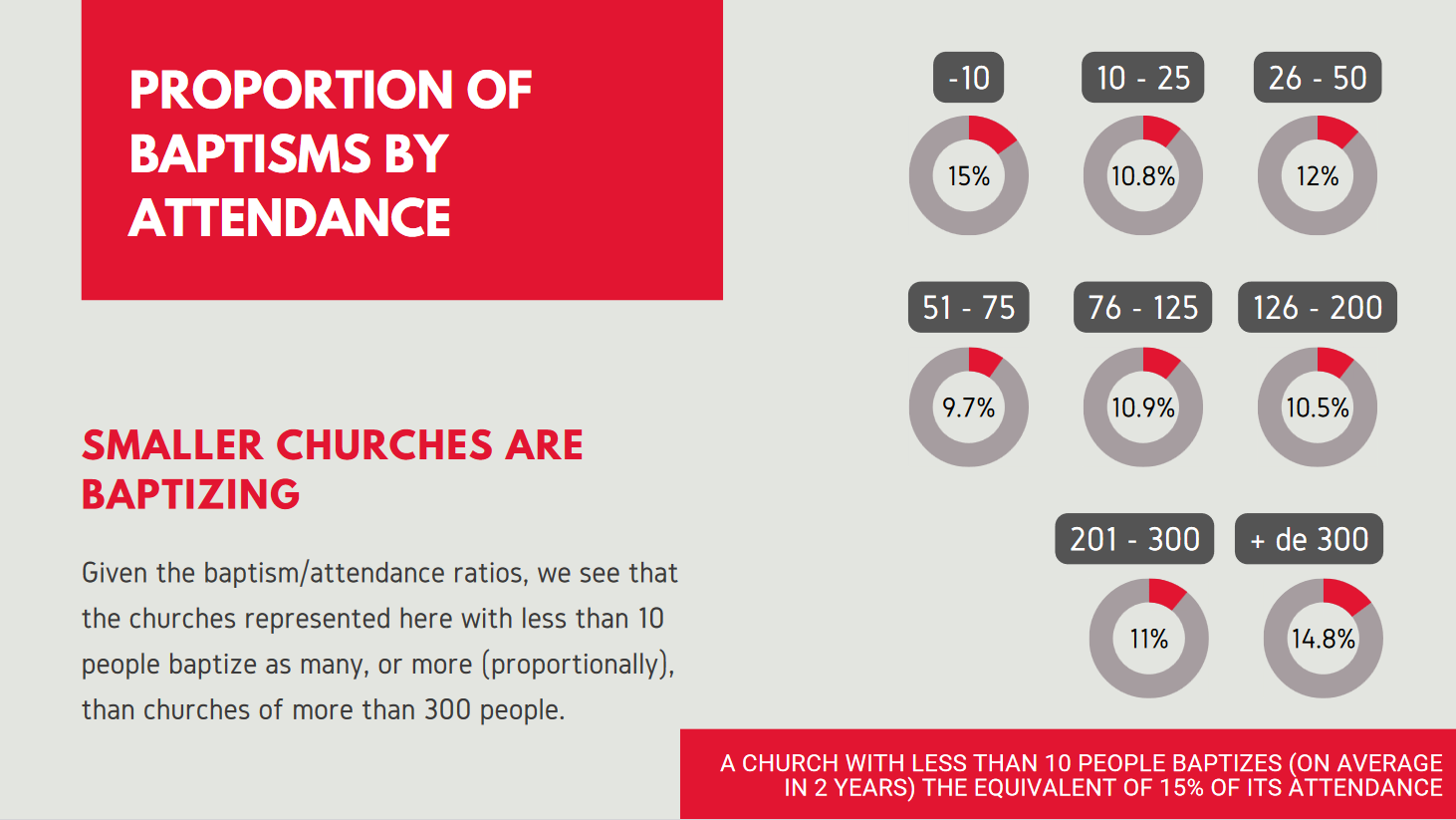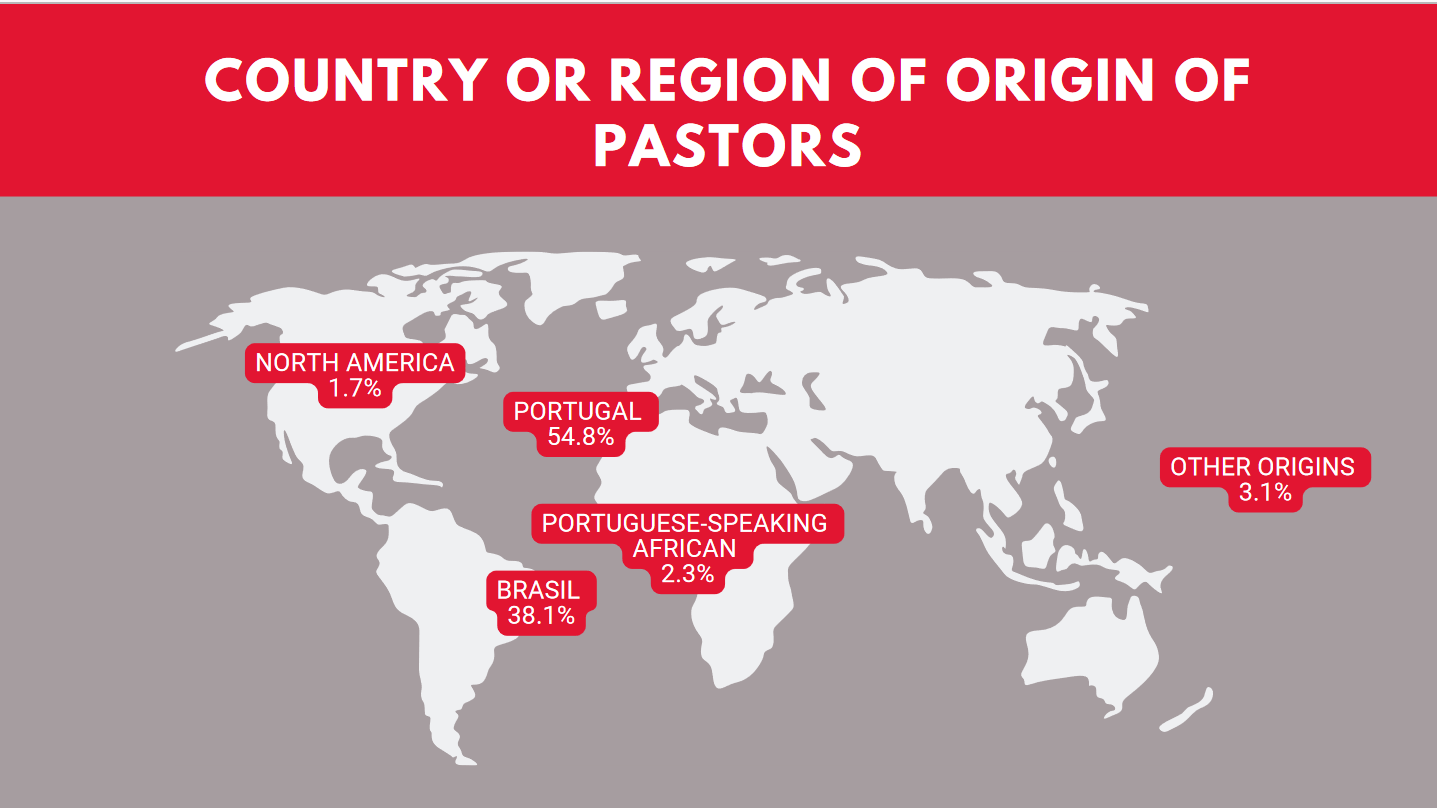According to research, 44% of Portuguese evangelical churches were started after the year 2001. Many pastors are from Brazil but 7 in 10 new believers are nationals.
![An evangelical worship service in a church in Sintra, Portugal. / Photo: [link]Portuguese Evangelical Alliance[/link].](https://cms.evangelicalfocus.com/upload/imagenes/64ae9d51d9136_portugal940Cropped.jpg) An evangelical worship service in a church in Sintra, Portugal. / Photo: [link]Portuguese Evangelical Alliance[/link].
An evangelical worship service in a church in Sintra, Portugal. / Photo: [link]Portuguese Evangelical Alliance[/link].
Portugal is seeing an increase in church plants led by evangelical churches. In the regions of Lisbon and Setúbal, for example, around 20% of churches were started after 2020.
The data published by Portuguese Evangelical Alliance (AEP) is based on interviews with 350 churches in the Southern European country and focused on the period 2020-2023.
The report paints a thriving evangelical movement in which 62.5% of the churches said they have “defined plans and locations to plant new churches in the next 5 years”.

[photo_footer] Data and graph: “Relatório 2023 – Igreja Evangélica em Portugal: vista de perto” / Portuguese Evangelical Alliance. [/photo_footer] In fact, 44% of the evangelical churches in Portugal were started after the year 2001.
A large majority says their church is growing, and 53% have seen more people attend their activities than before the pandemic.
No matter the size - the AEP contacted churches from less than 10 members to congregations of over 300 -, all kind of churches are baptising between 10-15% of the number of people attending its services every 2 years. Only adults are baptised in most evangelical churches, after they express a public commitment to the Christian faith.

[photo_footer] Data and graph: “Relatório 2023 – Igreja Evangélica em Portugal: vista de perto” / Portuguese Evangelical Alliance. [/photo_footer]
Over 73% of people who have professed a conversion to the Christian faith in evangelical churches since 2020 have a Portuguese nationality. 4 in 10 come from evangelical families and one third belong to the Generation Z (born after 1997), many others convert from a Roman Catholic background.
Portugal has historic links with other parts of the world, and this is also reflected in the leadership of evangelical churches. 38% of evangelical pastors were born in Brazil, and another 2% come from Portuguese-speaking Africa.

[photo_footer] Data and graph: “Relatório 2023 – Igreja Evangélica em Portugal: vista de perto” / Portuguese Evangelical Alliance. [/photo_footer]
In 47% of the churches, over half of the attendants are from another national background, whereas in 30% of the congregations over three quarters are Portuguese.
The report shows that “most pastors affirm that there are no barriers to deep unity and cooperation among the different nationalities present in their local church”.
Despite de positive figures, the AEP also found less encouraging realities for evangelical churches.
No new churches were started since 2020 in 6 of the 10 largest municipalities of Portugal.
In the interior regions, like Portalegre (east), six in ten churches have less than 25 people, and over 70% have seen no new baptisms since 2020.
Evangelical Christians in Portugal now represent 2.1% of the population, according to the official census of the year 2021.
The same source says Roman Catholics are 80% of the population (although with a deline of a 8% of its membership since 2011), and the “non-religious” double their growth from 7% to 14%.
The Portuguese Evangelical Alliance celebrated 100 years of existence in 2021.
[donate]

Las opiniones vertidas por nuestros colaboradores se realizan a nivel personal, pudiendo coincidir o no con la postura de la dirección de Protestante Digital.
Si quieres comentar o